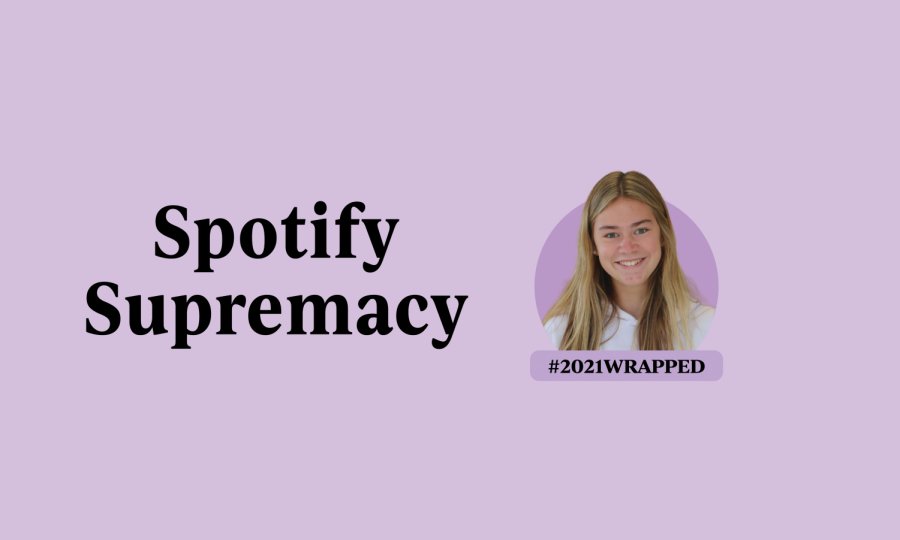 Only a couple of hours had passed after gunman Adam Lanza claimed 26 lives at Connecticut’s Sandy Hook Elementary School and became national news when the topic of gun control became a central focus of the tragedy.
Only a couple of hours had passed after gunman Adam Lanza claimed 26 lives at Connecticut’s Sandy Hook Elementary School and became national news when the topic of gun control became a central focus of the tragedy.
As debates on gun control have reigned on since the Dec. 14 tragedy, another equally important topic in relation to the shooting was left out of the national discussion: the role of mental illness in the tragedy; particularly, the gross lack of mental health treatment and availability of current treatments. As students, who are at risk for attacks such as this, we must see that mental health must be treated with the same vigor as physical health.
How mentally ill people are treated and mental illness as a whole must be discussed. One thing many mental health professionals agree on is that the stigma associated with mental illnesses must be erased. The fact of the matter is that, despite the skilled workforce and advanced mental health centers located in the United States, it is still easier for someone with a physical illness such as diabetes, for example, to receive care than it is for someone with a mental illness. The reason being is that while people are generally not looked upon negatively when they have a physical illness, sadly many mentally ill are.
It is often the off-putting stigma surrounding the topic of mental illness that prevents people from accessing care. Dr. Hisham Hafez, executive director and chief medical officer of the Greater Nashua Mental Health Center in New Hampshire, said, “When one looks at mass shootings all together, the incidents most often occur out of the blue.
Looking back, it is easy to spot the loners, now suspects, and their eccentric behavior.” The bigger issue at hand is how to create a health strategy that allows people to receive the care they need, as well as to evaluate their aptitude to be able to function within societal norms.
Despite renewed attention to the topic of mental illness, funding for such health programs and support groups has been drastically cut nationwide in light of the recent recession and the need to conserve government funds for paying off the national debt. People are falling through the cracks of a health system being drained in every way possible.
Louis Josephson, CEO of Riverbend Community Mental Health and vice president for behavioral services at Concord Hospital in Connecticut, said, “The bottom line for me is we’re barely able to keep up with people asking for help or being brought in for help by the police and others, let alone people we should be reaching out to, which in my mind includes people like Adam Lanza, who probably aren’t self-referring themselves for service. The people who are involved with us and are in services here, I am very confident about the community’s being safe and their being safe. It’s the people who are in and out of services, dropping out, who I really worry about.”
One of many reforms that can be made not only to mental health services, but to society’s way of thinking is that, in this society, we’re not pre-emptive—most of our health care system is built on that fact that one must be ill in order to be treated.
The solution for recovery is not only providing treatment but also preventing the need for treatment to be provided. Many of the suspects at the centers of such tragedies are people who go unnoticed, the wallflowers of society. There must be a system in place that over time encourages a culture that doesn’t provide services but rather provides caring.
It is through these means that we can do away with the difficulty encountered when attempting to attain mental health care, thus reducing the amount of people with mental health issues whose conditions go overlooked. For it is in that vast group of overlooked people that there exists a couple lone wolves—people who need our help more than ever—people just like Adam Lanza.
Omeed Malek is the front page editor of the HiLite. The views in this column do not necessarily reflect the views of the HiLite staff. Reach him at [email protected].



















![Joseph Broman, Mu Alpha Theta sponsor, grades tests for his honors precalculus/trigonometry class. Broman said, “I’m retiring from the Math Club next year and I’m just going to do Mu Alpha Theta so I can focus on that one and we can do more [speaker series] first semester.”](https://hilite.org/wp-content/uploads/2024/03/IMG_9502-1200x900.jpg)











![British royalty are American celebrities [opinion]](https://hilite.org/wp-content/uploads/2024/03/Screenshot-2024-03-24-1.44.57-PM.png)




















![Review: “The Iron Claw” cannot get enough praise [MUSE]](https://hilite.org/wp-content/uploads/2024/04/unnamed.png)
![Review: “The Bear” sets an unbelievably high bar for future comedy shows [MUSE]](https://hilite.org/wp-content/uploads/2024/03/unnamed.png)
![Review: “Mysterious Lotus Casebook” is an amazing historical Chinese drama [MUSE]](https://hilite.org/wp-content/uploads/2024/03/0.webp)
![Thea Bendaly on her Instagram-run crochet shop [Biz Buzz]](https://hilite.org/wp-content/uploads/2024/03/IMG_0165-1200x838.jpg)
![Review: Sally Rooney’s “Normal People,” is the best book to read when you are in a time of change [MUSE]](https://hilite.org/wp-content/uploads/2024/03/20047217-low_res-normal-people.webp)
![Review in Print: Maripaz Villar brings a delightfully unique style to the world of WEBTOON [MUSE]](https://hilite.org/wp-content/uploads/2023/12/maripazcover-1200x960.jpg)
![Review: “The Sword of Kaigen” is a masterpiece [MUSE]](https://hilite.org/wp-content/uploads/2023/11/Screenshot-2023-11-26-201051.png)
![Review: Gateron Oil Kings, great linear switches, okay price [MUSE]](https://hilite.org/wp-content/uploads/2023/11/Screenshot-2023-11-26-200553.png)
![Review: “A Haunting in Venice” is a significant improvement from other Agatha Christie adaptations [MUSE]](https://hilite.org/wp-content/uploads/2023/11/e7ee2938a6d422669771bce6d8088521.jpg)
![Review: A Thanksgiving story from elementary school, still just as interesting [MUSE]](https://hilite.org/wp-content/uploads/2023/11/Screenshot-2023-11-26-195514-987x1200.png)
![Review: When I Fly Towards You, cute, uplifting youth drama [MUSE]](https://hilite.org/wp-content/uploads/2023/09/When-I-Fly-Towards-You-Chinese-drama.png)
![Postcards from Muse: Hawaii Travel Diary [MUSE]](https://hilite.org/wp-content/uploads/2023/09/My-project-1-1200x1200.jpg)
![Review: Ladybug & Cat Noir: The Movie, departure from original show [MUSE]](https://hilite.org/wp-content/uploads/2023/09/Ladybug__Cat_Noir_-_The_Movie_poster.jpg)
![Review in Print: Hidden Love is the cute, uplifting drama everyone needs [MUSE]](https://hilite.org/wp-content/uploads/2023/09/hiddenlovecover-e1693597208225-1030x1200.png)
![Review in Print: Heartstopper is the heartwarming queer romance we all need [MUSE]](https://hilite.org/wp-content/uploads/2023/08/museheartstoppercover-1200x654.png)























![Review: Ladybug & Cat Noir: The Movie, departure from original show [MUSE]](https://hilite.org/wp-content/uploads/2023/09/Ladybug__Cat_Noir_-_The_Movie_poster-221x300.jpg)

![Review: Next in Fashion season two survives changes, becomes a valuable pop culture artifact [MUSE]](https://hilite.org/wp-content/uploads/2023/03/Screen-Shot-2023-03-09-at-11.05.05-AM-300x214.png)
![Review: Is The Stormlight Archive worth it? [MUSE]](https://hilite.org/wp-content/uploads/2023/10/unnamed-1-184x300.png)






